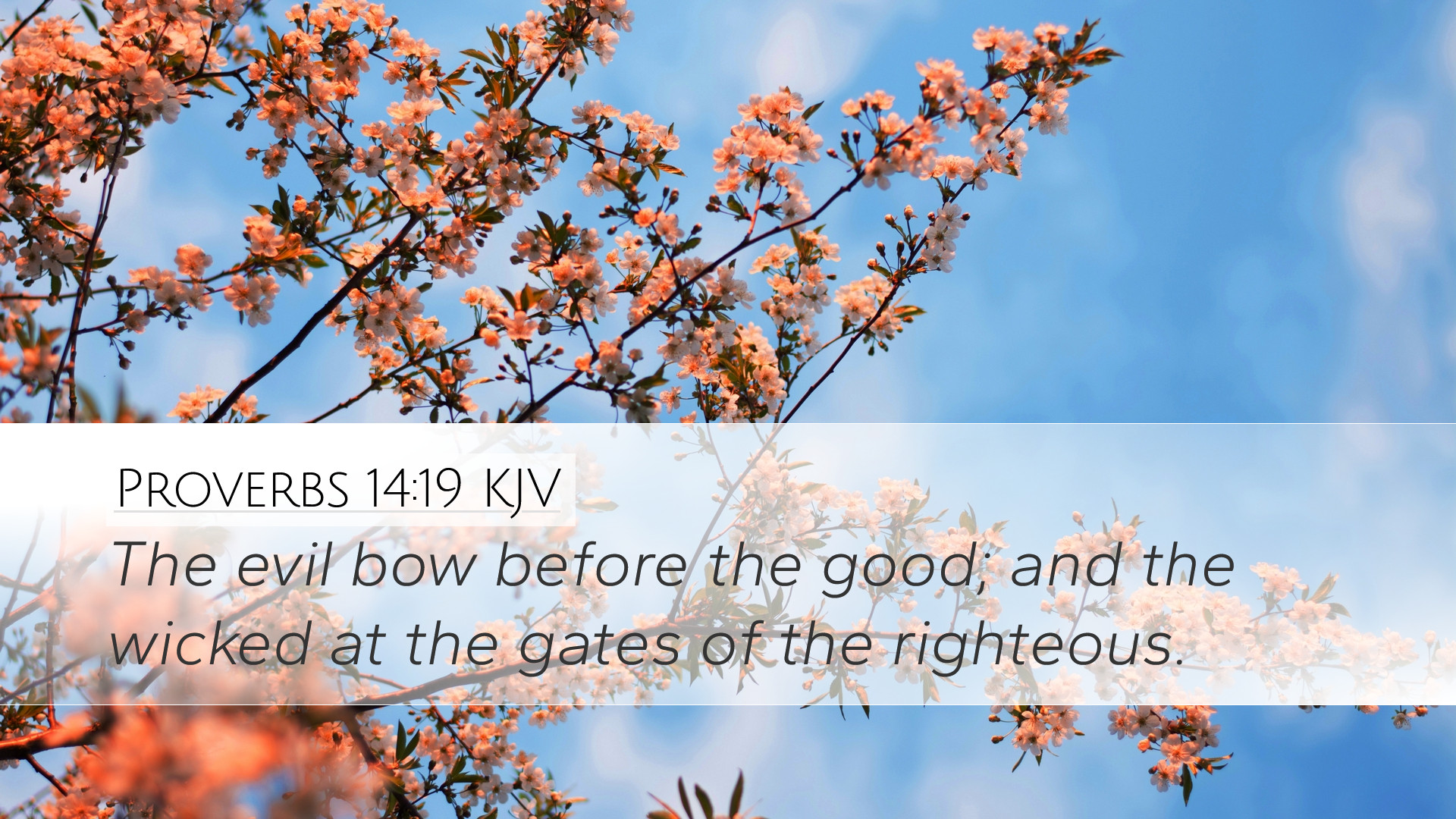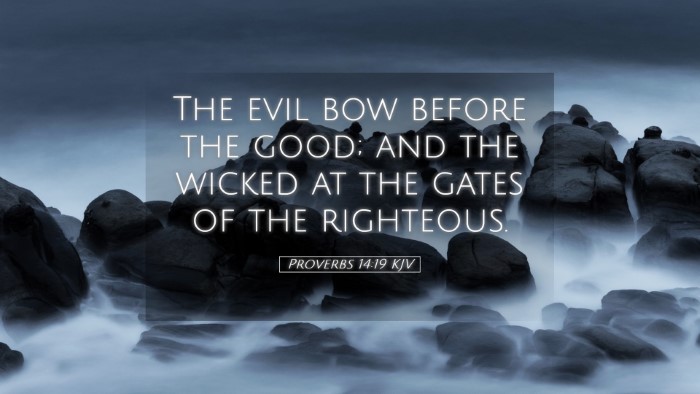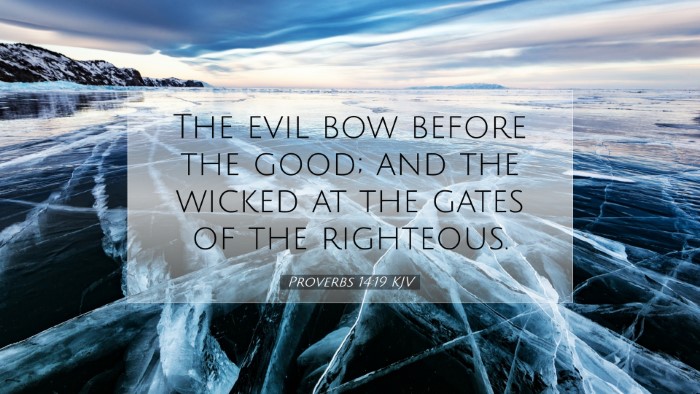Commentary on Proverbs 14:19
Verse Context:
Proverbs 14:19 states, "The evil bow before the good; and the wicked at the gates of the righteous." This verse presents a profound observation into the moral and spiritual order, revealing the ultimate triumph of righteousness over wickedness.
General Insights
This passage reflects a common theme throughout Proverbs: the contrast between the righteous and the wicked. The structure of the verse suggests a future scenario where those who practice evil are compelled to recognize the superiority of those who embody goodness.
Commentary from Public Domain Sources
Matthew Henry's Commentary
Matthew Henry emphasizes that the verse underscore the inevitability of justice. He notes that even though the wicked may seem to flourish in life, there will come a time when their wrongdoing will lead them to bow down before the righteous. This ultimate reversal serves as an encouragement to the faithful to remain steadfast in their practices of goodness. Henry points to the gates of the righteous, symbolizing a place of authority and protection, where righteousness reigns supreme.
Furthermore, he highlights the moral order established by God, suggesting that while the wicked may temporarily prosper, they will eventually find themselves in a position of humility before those who indulge in righteousness. This, he argues, serves not only as a warning to the wicked but also as a comfort to the righteous.
Albert Barnes' Notes
Albert Barnes expands on the implications of the verse regarding social dynamics. He notes that the phrase “the evil bow before the good” can be seen as a prophetic declaration of the societal acceptance of righteousness. Barnes interprets “bowing” as both a submission and an acknowledgment of the moral authority that the good possess. He posits that in times of societal chaos, the truth of this proverb becomes manifest, as people become desperate for guidance and moral leadership.
He also comments on the significance of “at the gates of the righteous,” which he considers a metaphor for judgment and governance. The gates represent a threshold of moral fortitude, and the righteous, as guardians of such virtue, exemplify a standard that the wicked will eventually have to recognize, leading them to submission.
Adam Clarke's Commentary
Adam Clarke brings a robust theological perspective to the verse. He argues that this statement serves as an assurance to believers about the ultimate victory of good over evil. Clarke underscores the notion that no matter how powerful the wicked may seem, the day will come when they are humbled. He notes that this chapter emphasizes not only the moral stance of the righteous but also their eventual vindication.
Clarke further elaborates the idea that even now, the righteous stand in a position that commands respect—implying both spiritual authority and societal impact. He concurs with Henry regarding the importance of perseverance in righteousness, indicating that those who continue to live by God’s commands will ultimately see their faith rewarded.
Theological Implications
The theological implications of Proverbs 14:19 give us insight into God's justice and the ultimate fate of the wicked in contrast to the reward of the righteous. This passage invites a reflection on divine sovereignty and the reality of moral governance in the world.
1. Assurance of Justice
For pastors and theologians, this verse serves as a reminder of God’s ultimate justice. It reassures the faithful that despite the current state of the world where evil may run rampant, God's promise is that righteousness will prevail. This sheds light on the often overlooked reality that earthly struggles hold eternal significance.
2. Call to Righteous Living
This verse acts as a motivation for believers to live righteously. Understanding that the wicked will ultimately bow serves as an encouragement that their faithfulness is not in vain. Scholars note that this verse fosters resilience within the community of believers.
3. Warning to the Wicked
For those studying the nature of evil and wickedness, this verse offers a stark warning. It heralds the inevitability of downfall for those who reject righteousness, making it a significant reflection point on the consequences of a life lived outside of divine principles.
Practical Applications
- Encouragement in Preaching: Pastors can use this verse to encourage congregations facing oppression or adversity, reinforcing the idea that righteousness will ultimately be vindicated.
- Guidance in Counseling: Counselors may find this verse useful in providing assurance to those struggling with the weight of moral choices, encouraging them to uphold their principles despite societal pressure.
- Theological Discussions: This verse can serve as a key text in discussions around eschatology and theodicy, examining God’s justice and moral order throughout history and beyond.


